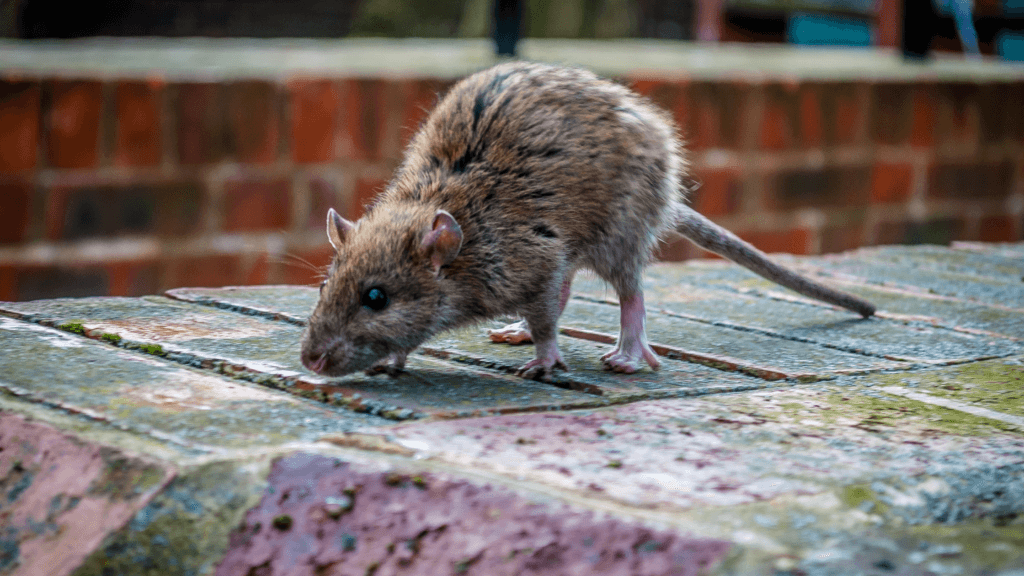In the realm of pest management, the balance between efficacy and ecological responsibility is more than a goal for Ecologic Entomology—it’s a mandate. Navigating the complexities of rodenticide use in pest management is a pressing issue, as many know, and demands a nuanced approach that respects both human needs and ecological sensitivities. We stand committed to this delicate equilibrium, understanding that every decision to control rodent populations carries weighty implications for our clients and the environment. So, where do we go from here in finding the balance between the pros and cons of rodenticide use?
Effectiveness of Rodenticides
Rodenticides have gained popularity due to their perceived efficacy in eliminating rat populations. They typically disrupt the rodents’ physiological systems, leading to death. The immediate impact of rodenticides is often successful, reducing rat populations and curbing the threat of disease transmission. Moreover, these chemical agents can reach inaccessible areas, offering a comprehensive solution when deployed correctly.
Ecological Consequences
Despite their effectiveness, the use of rodenticides can have unintended ecological consequences. One notable concern arises from the bioaccumulation of rodenticides in the food chain. Secondary poisonings occur when wildlife, such as birds of prey or mammals, consume poisoned rats. Additionally, non-target animals, including pets, can be inadvertently exposed to rodenticides, resulting in unintended harm. Therefore, it is crucial to consider the potential impact on the ecosystem before resorting to the widespread use of rodenticides.
Development of Resistant Rat Populations
Another issue associated with the use of rodenticides is the development of resistance in rat populations. Over time, rats can develop immunity to certain chemical compounds used in rodenticides, making them less effective in controlling infestations. The emergence of resistant rats necessitates the rotation of rodenticide active ingredients, which can increase costs and environmental impacts. This resistance highlights the importance of integrated pest management strategies that consider a range of control methods instead of relying solely on rodenticides.
The Flip Side
Eliminating the use of rodenticides would undoubtedly have ramifications. First off, the biological aspect of rapid rodent reproduction must be considered. Without effective population control measures, such as rodenticides, rodent populations would escalate exponentially, further compounding issues of disease spread, agricultural damage, and infrastructural degradation.
Recognizing the significant health risks rodents pose, notorious carriers of diseases such as Hantavirus, Leptospirosis, and even the Plague, is vital. The absence of rodenticides would ultimately lead to a surge in these health threats, putting both human and animal populations at risk.
Structural damages to homes and businesses would also rise from surging rodent populations. It’s reported that rodents cause up to 20% of undetermined fires in the United States annually. The costs of rodent damage to wiring, structures, and other property can amount to billions of dollars annually, highlighting the significant economic impact of these seemingly small pests. The agricultural sector, a cornerstone of our economy, would face dire challenges. Rodents are not just consumers of crops but also cause damage through their burrowing activities, leading to substantial agricultural losses. These losses are staggering in monetary value, amounting to billions of dollars annually in damaged crops and stored products.
Striking a Balance
In light of these considerations, both for rodenticide use and opposed, it becomes clear that the conversation shouldn’t be about outright elimination but rather about finding a balanced, responsible approach. Integrated pest management strategies emphasizing the minimal use of rodenticides as needed and alternative control measures offer a more sustainable and environmentally conscious path forward. This approach addresses the pressing need for effective pest control and aligns with the broader goal of preserving ecological integrity and public health.
Exclusion methods are also a pivotal alternative to rodenticides under the right circumstances. This method involves meticulously sealing entry points and eliminating food and water sources to deter rodents from infiltrating an area. Exclusion effectively reduces the likelihood of rodent infestation by creating physical barriers and modifying environments to be less hospitable to pests. Although it requires upfront effort and ongoing maintenance, this humane and eco-friendly approach aligns with sustainable pest management practices, offering a proactive solution to rodent control without the associated risks of chemical treatments. The success rate of exclusion lowers when talking about specific environments, such as commercial properties that may have loading docks that open and close throughout the day.
Intelligent Pest Control
One of our core values at Ecologic Entomology is prioritizing a balanced and responsible approach to pest management. We believe in and practice Integrated Pest Management (IPM) as a cornerstone of our services, blending proactive measures with rodenticides when necessary. Our commitment extends beyond methods to the rigorous training of our service technicians, ensuring they are well-equipped to implement effective and responsible strategies that are environmentally conscious.
As a business in the professional pest management industry, we recognize the real and pressing risks posed by the misuse and overuse of rodenticides, and we are committed to being part of the solution. By prioritizing responsible practices, continuous education, and a deep understanding of the ecosystems we operate in, we aim to address pest control challenges without compounding the issue, safeguarding our client’s interests and the health of our planet.
Ready to Take Your Pest Control Strategy to the Next Level?
In an era where businesses and homeowners are grappling with the challenges of effective environmentally conscious rodent solutions, the need for innovation and responsibility in pest control has never been more critical. Ecologic Entomology is proud to offer customers a fresh, intelligent approach to effective pest control.
